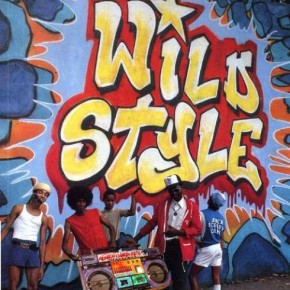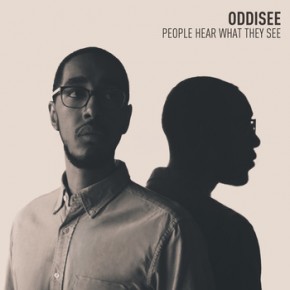Not too long ago, an internet acquaintance declared that 2012 marked the end of his love for hip-hop. Now I’ve heard a lot of similar declarations since Nas pissed on the proverbial bonfire in 2006, but this was the first one that really upset me. Hearing it from some douchebag in the comment section of a Freddie Foxxx review is one thing, but this was coming from the closest thing to a professor emeritus that hip-hop has ever known. And besides, finding a thoughtful and well-spoken music reviewer on the internet is like finding a gold nugget in a turd brick. So knowing that he’s put the kibosh on his love for hip-hop—well, shit, that just fucking sucks.
Long-time hip-hop fans have been jumping ship for the past few years, and no one’s really bothered to ask, “Why?” I guess it’s easy to say, “Ah, fuck those guys—they’re old, who gives a shit?” but I think it deserves a little more consideration. What exactly has changed in the last few years? Why are people continuing to buy Nas and Roots albums, but shrugging indifferently whenever Heems or Big K.R.I.T. drops a critically-acclaimed mixtape? How is Master P’s bastardized, commercialization of hip-hop more legitimate than Waka Flame’s? Let’s start with the biggest change of all: hip-hop has long been governed by a sense of communalism, and while it’s fostered a sense of kinship that’s damn near unprecedented in music, it’s also inspired a lot of pettiness and bullshit—from “Queens v. Bronx” to “East v. West” to “Underground v. Mainstream.” When I started listening to hip-hop in the early-zeros, everything was demarcated into a coast, sub-genre or scene: east, west, south, boom bap, jazz rap, g-funk / p-funk, horrorcore, mafioso, “conscious,” crunk, backpacker, commercial etc. etc.
However, things done changed within the past few years: the internet has disintegrated most of hip-hop’s old sectionalism. In fact, the coastal dialectic has been so thoroughly eviscerated there’s not even a corpse left to bury. It’s why Killer Mike and El-P can drop an album together—why Blu can follow a golden age throwback (Below the Heavens) with a 30th Century opus (NoYork!)—why underground swag rappers like A$AP Rocky and SpaceGhostPurrp are rhyming over dense, avant-gardist shit. Nobody is trying to pigeonhole Danny Brown, Mr. Muthafuckin’ eXquire and Death Grips into a scene, or impose fictional boundaries over their work. It’s anarchy—beautiful, fucking anarchy! And if that sounds terrifying, then consider that most genres and scenes are just marketing placeholders for corporatist music rags and industry execs, which inhibit far more creativity than they inspire. It probably won’t last, since music writers have to ruin everything at some point, but hip-hop couldn’t be anymore exciting right now. The staid indie scene can’t even compete.
We live in an ideological climate obsessed with the death of artform, especially when it comes to music. To be perfectly honest, I don’t think this generation of writers and thinkers really knows how to process the arts; as I’m sure you’ve noticed, whenever a fresh artistic concept begins to make rounds, it’s immediately tagged with a “post-” identifier. Post-rock, post-hardcore, post-metal, post-punk—personally, I can’t wait until Animal Collective break up, so Pitchfork can start referring to music as “post-indie.” The “post-” moniker, however implicitly, insinuates that the founding movement is no longer relevant, and has thus been replaced by something more cutting edge and unique. Either the intellectual community doesn’t put a lot of stock in its coinage or it has no fucking clue how ideas work. An idea doesn’t travel from left to right; it’s circular. It might vanish behind the sun or return with three new moons and a set of asteroid burns, but it never drops from orbit. If a major publication says that “…is dead,” it’s just to promote whatever bullshit they’re hawking in a given month.
And yet, dubious intellectualism isn’t entirely responsible. The sad truth is this: people get fucking old, and I don’t just mean individually. One generation inevitably wrests power and influence from the other, and it’s never a peaceful transition. To make things all the more insulting, the incumbent generation is usually ousted having accomplished little to none of its aspirations (How did universal peace, love and understanding work out for you, 1960s?). This phenomenon isn’t unique to any particular demographic—hell, Popblerd’s own Dave Rullo has spent most of his column documenting this experience. Hip-hop is in the midst of yet another generational upheaval; I say “another,” because it’s not even close to the first time it’s happened. After all, Kool Moe Dee went after LL Cool J because he thought that hip-hop’s founding architects were being excluded from the early-golden age. Same shit, different epoch. It’s much easier to declare that something’s dead than to admit that it’s moved on without you. And I’m not saying that in judgment or patronization, because everybody experiences a similar crisis in faith at some point. Unraveling, etc.
——————————-
Oddisee is a DC rapper/producer, who’s been recording for a little over a decade, but has only started to grab widespread notice within the past few years. I got introduced to him through last year’s mostly instrumental Rock Creek Park, nature as depicted through four decades of black music: hip-hop, jazz, funk, soul, even disco (see “Uptown Cabaret”). It didn’t rip out the guts of the hip-hop underground the way that Return of 4Eva or LiveLoveA$AP did, but I think that everybody who listened realized that it was something massive—that Oddisee was on the verge of a breakthrough. And here we are a year later with People Hear What They See: Oddisee’s “proper” debut album, or at least the first to really showcase his skills as an MC, storyteller and producer.
Oddisee has said that every song was written “in an outside environment” and inspired by things he’s observed over the past year—trying to move beyond the self-absorption and insularity afflicting today’s hip-hop scene. While that’s cool and everything, my favorite tracks here are the ones that chronicle Oddisee’s experiences as a struggling artist or feature him dropping science about racism, government and corruption. “Ready to Rock” talks about his development and growth as an artist, and all the work he’s put into reaching this point of his career. “You Know Who You Are” gives thanks to the people who supported his artistic vision while simultaneously castigating those that tried to suppress it. “Set You Free” and “Think of Things” rally against the institutions that keep people oppressed. It makes me think of Common’s work on One Day It’ll All Make Sense and Like Water for Chocolate, in that it strikes a perfect balance between thoughtful storytelling and badass lyricism.
And holy shit, can this guy fucking produce. Once again, Oddisee is drawing from a wide musical palette and playing bandleader to a small group of session musicians. “Let It Go” sounds like something that Curtis Mayfield or Isaac Hayes would’ve assembled in their prime. “That Real” combines Funk Brothers rhythms, booming horns, glittering synths and floating harmonies, then throws in a couple of scratches, because hey—why the fuck not? “Do It All” pays homage to mid-nineties boom bap without sounding like a sad Primo retread. “Way In Way Out” takes this wailing sample and pushes it into a set of industrial snares, and it reminds me a lot of Apollo Brown’s work on Gas Mask. This guy’s talent really can’t be oversold—the amount of layering and detail on every one of these beats is nothing short of astounding.
People Hear What They See is now available at Bandcamp, iTunes, Amazon or wherever the fuck else you feel like purchasing it. Pass it along to the disgruntled, former B Boys in the family and invite them to catch up.
Grade: A




3 comments
Kyle says:
Jun 22, 2012
Ehh, people’s love for hip-hop doesn’t always die the way they think it does. I still hold out a lot of faith for it, and I don’t care if anyone disagrees with me. HOWEVER the Common comparisons sold me, I’ll check this out when I can…
Greg says:
Jun 22, 2012
You should definitely check it out, Kyle – especially since you can effectively listen for free over at Bandcamp. I’d be amazed if you didn’t like it.
The Popblerd Halftime Show: Greg's Best of 2012 So Far | Popblerd!! says:
Jun 29, 2012
[…] 6.) Oddisee – People Hear What They See […]